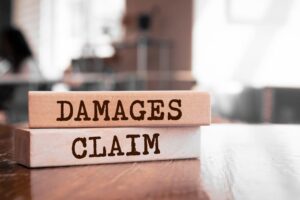Last Updated on August 24, 2024 by SEO Rankings
Working on an offshore platform presents significant risks. The job involves exposure to hazardous conditions, including the potential for oil spills that can lead to severe injuries.
Hiring a maritime injury lawyer to explain your legal rights and fight for the compensation available to you if you suffer an injury in an oil spill is vital. This knowledge not only helps in handling the complications of your case but also ensures that you receive the compensation you deserve.
Whether dealing with immediate medical needs, long-term recovery, or the financial impact of lost wages, knowing what damages you can collect can significantly affect your recovery process and financial stability. Here’s a look at the laws governing cases like yours and how a skilled maritime injury lawyer can help you get the money you deserve.
The Legal Framework for Offshore Injuries

The Jones Act
The Jones Act plays a critical role in protecting offshore workers. This federal law provides seamen the right to sue their employers for injuries sustained due to negligence. The Jones Act covers many scenarios, including when an employer fails to maintain a safe working environment or provide adequate safety training.
If negligence contributed to your injury, the Jones Act allows you to seek compensation for medical expenses, lost wages, pain and suffering, and more. This law is particularly relevant to oil spill incidents, where employer negligence may involve inadequate safety protocols or improper equipment maintenance. By filing a claim under the Jones Act, a maritime injury lawyer can hold your negligent employer accountable and secure the financial resources needed for recovery.
General Maritime Law
General maritime law also protects offshore workers. It governs injuries and accidents on navigable waters, including those caused by oil spills.
One of the key principles of maritime law is maintenance and cure. This principle mandates employers pay for a seaman’s necessary living expenses and medical treatment. They must do this until the seaman reaches maximum medical improvement. This means the seaman is either well enough to return to work or their condition has improved as much as a medical professional says it will.
Maintenance covers daily living expenses such as food and lodging, while cure involves paying medical costs. In the context of an oil spill injury, maintenance and cure ensure you receive the necessary financial support during your recovery period. This legal obligation exists regardless of fault, meaning that even if the employer wasn’t negligent, they’re still responsible for these payments.
Outer Continental Shelf Lands Act (OCSLA)
The Outer Continental Shelf Lands Act (OCSLA) further extends federal protections to offshore workers. OCSLA applies to employees working on fixed platforms on the outer continental shelf, including many oil rigs. This law extends the protections of the Longshore and Harbor Workers’ Compensation Act (LHWCA) to these workers, allowing them to claim compensation for injuries sustained during their employment.
Under OCSLA, injured workers can receive compensation for medical expenses, rehabilitation costs, and lost wages. OCSLA also allows for lawsuits against third parties who may have contributed to the injury. For instance, if a subcontractor’s equipment malfunctioned and caused an oil spill, you might have a valid claim under OCSLA. This act ensures that offshore workers can access comprehensive legal remedies when injured on the job, providing an essential safety net in high-risk environments.
Types of Damages You Can Collect
If you take legal action in the wake of your injury, you’ll do so to obtain damages or compensation for your accident-related financial losses. When hurt by an oil spill on an offshore platform, you may collect several types of damages. Here are just a few.
Medical Expenses
Medical expenses represent a significant portion of these damages. You can claim coverage for emergency treatment, hospitalization, and any surgeries required. We can’t overstate the importance of documenting all medical expenses, as this documentation forms the foundation of your claim.
You must meticulously record every cost of your treatment, from ambulance fees to medication. Injuries from oil spills often require long-term medical care, including rehabilitation and therapy. You can claim compensation for ongoing medical treatment, and it’s essential to consider future medical needs when calculating these damages.
Your maritime injury lawyer will include the cost of future surgeries, physical therapy, and even mental health services in your claim. Doing so will help ensure you receive compensation for the full scope of your injury.
 Lost Wages
Lost Wages
Lost wages are another critical component of the damages you can collect. If your injury prevents you from working, you’re entitled to compensation for the income you lose during your recovery period. Lost wages include your base salary and other earnings (bonuses, overtime, etc.) you would have received if you weren’t hurt.
Calculating lost wages involves examining your employment records, pay stubs, and any contracts that outline your earnings. In severe injury, where the injury permanently affects your ability to work, you can also claim future lost earnings. This compensation accounts for the reduced earning capacity due to long-term or permanent disability.
Projecting future earnings involves considering your age, occupation, and potential career advancements, ensuring that your claim reflects the full impact of your injury on your financial future.
Pain and Suffering
Pain and suffering damages compensate you for the injury’s physical and emotional toll. Physical pain due to burns, chemical exposure, or other injuries sustained in an oil spill can be debilitating. These damages aim to compensate for the pain endured during your recovery and, in some cases, the ongoing pain that may persist long after the initial injury.
Emotional distress is another vital aspect of pain and suffering damages. Injuries from oil spills can lead to significant psychological trauma, including anxiety, depression, and post-traumatic stress disorder (PTSD). Compensation for emotional distress acknowledges the impact that the injury has on your mental health and overall quality of life.
Mental health documentation and testimony from healthcare professionals play a crucial role in supporting your emotional distress claim.
Challenges in Collecting Damages
Collecting damages after an offshore injury, particularly in the context of an oil spill, presents several significant challenges. But a skilled maritime injury lawyer can handle all of them. These challenges include:
 Proving Negligence
Proving Negligence
Proving negligence is one of the most formidable obstacles your maritime injury lawyer will work to overcome. You bear the burden of proof, meaning that you, as the injured worker, must clearly demonstrate that your employer or a third party’s negligence directly caused the oil spill and your subsequent injury.
This process involves more than merely asserting that negligence occurred; it requires a detailed and compelling presentation of evidence that leaves little room for doubt. Employers, aware of the stakes, often employ various defenses to avoid liability. They may argue that the injury resulted from your own actions or that the spill was an unforeseeable event beyond their control.
To counter these defenses effectively, your maritime injury attorney will work to collect and present substantial evidence. This evidence includes the following:
- Collecting witness statements from colleagues who observed unsafe practices or equipment failures.
- Securing maintenance records that reveal a history of neglect or insufficient upkeep.
- Obtaining safety reports that might highlight past concerns or violations.
These pieces of evidence work together to establish a clear and undeniable link between your employer’s negligence and your injury.
Delays and Denials
While proving negligence often complicates the process of collecting damages, so do the delay and denial tactics employers and insurance companies often use. These parties may question the severity of your injury, dispute the validity of the evidence you present, or suggest that the injury is unrelated to the oil spill.
They’ll use such tactics to wear you down, hoping the prolonged process will lead to a reduced settlement or discourage you from pursuing your claim. Overcoming these challenges requires persistence and the thorough preparation of an experienced maritime injury lawyer.
Detailed medical records, consistent follow-up on claims, and a well-organized presentation of evidence are essential in countering these delaying tactics. An experienced maritime injury attorney can maintain pressure on the responsible parties, ensuring they treat your claim with the seriousness it deserves and not subject you to unjust delays or denials.
The Claims Process
Filing a claim involves several steps, each requiring careful attention to detail. First, your maritime injury lawyer must gather all necessary documentation and evidence to support your claim, including medical records, employment documents, and any evidence related to the oil spill. This documentation forms the basis of your claim and must be comprehensive and well-organized.
Deadlines and timelines are also critical in the claims process. The Jones Act, maritime law, and OCSLA all have specific statutes of limitations that dictate how long you have to file a claim. Missing these deadlines can result in forfeiting your right to compensation, so acting quickly is essential.
Settlement Negotiations
Once your attorney files your claim, the settlement process begins. Settlement negotiations often involve discussions between your maritime injury attorney and the employer or insurance company. During this process, you must weigh the factors before accepting a settlement offer, including the adequacy of the compensation relative to your medical expenses, lost wages, and pain and suffering. Your maritime injury lawyer will make the best recommendation to protect your best interests.
Going to Trial
If the settlement offer doesn’t meet your needs, your attorney may recommend taking the case to trial. Going to trial presents its own set of challenges, including the time and cost involved. Still, it may be necessary if the employer or insurance company refuses to offer a fair settlement. During the trial, the court will examine the evidence, hear testimony, and ultimately decide on the damages you are entitled to.
Why Legal Representation is Essential

A maritime injury lawyer will provide critical support throughout the claims process, carefully managing every aspect of your case. This support includes gathering essential evidence, negotiating settlements, and, if necessary, representing you in court. With a lawyer by your side, you’re better equipped to counter the strategies used by those who aim to reduce your compensation.
Legal Strategies for Success
One of the most vital roles of a maritime injury lawyer is proving negligence, a key factor in securing compensation. Establishing that your employer or a third party was at fault for the oil spill and your subsequent injury isn’t straightforward. It requires a well-structured approach to collecting and presenting evidence.
Your attorney will work to collect maintenance records, safety reports, and witness testimony that can substantiate your claim. These documents and testimonies help create a comprehensive narrative that links the negligence directly to your injury, strengthening your case significantly.
Handling Legal Challenges
A maritime injury lawyer is also instrumental in handling the numerous legal challenges in offshore injury claims. Jurisdictional issues, for instance, are common and can complicate the process of filing a claim. Offshore platforms often fall under different legal jurisdictions, and understanding which laws apply isn’t always clear-cut. An attorney will determine the correct legal framework to file your claim, ensuring you don’t encounter unnecessary delays or complications.
Meeting Deadlines
Again, filing deadlines on time is critical in these cases, and missing them can jeopardize your ability to collect damages. A skilled attorney will file your claim within the required timeframes, preserving your right to compensation.
By addressing these challenges directly and efficiently, your maritime injury lawyer will maximize your chances of receiving the compensation you’re entitled to. Legal representation streamlines the process and significantly increases the likelihood of a favorable outcome, whether through settlement or in court.
Let a Maritime Injury Lawyer Help You Pursue Justice
Contact a maritime injury lawyer who handles offshore platform injuries for personalized legal advice and to discuss your case in detail. Schedule a consultation to ensure you explore the full range of compensation available to you.

 Lost Wages
Lost Wages Proving Negligence
Proving Negligence